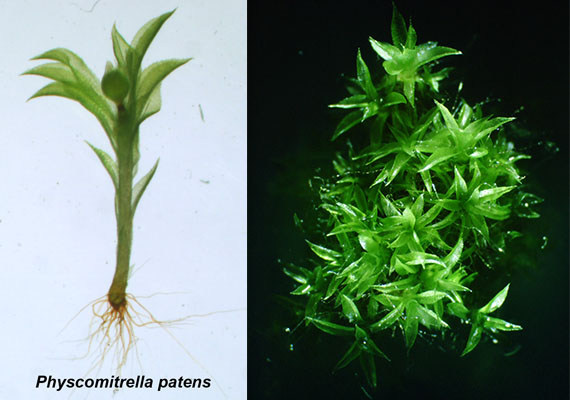Hokkaido University Space Moss Research Selected for JAXA Feasibility Study
Research Press Release | January 28, 2016

| Press Release | ||
|---|---|---|
|
Background |
“Environmental Response of Bryophytes in Space (‘Space Moss’) and Their Use in Space”, by Associate Professor Tomomichi Fujita of the Hokkaido University Faculty of Science, was selected by the Japan Aerospace Exploration Agency (JAXA) for a fiscal year 2015 “Feasibility Study for Use at ‘Kibo’ (General Recruitment Category)”. The project aims to maximize the on-board environment of the Japan Experiment Module “Kibo” in the International Space Station (ISS), to lead the world in producing excellent knowledge and providing results that can become a creative source for scientific and technological innovation for the future. This feasibility study will be performed jointly with JAXA, and will provide further details for the experimental plan and evaluate its technical feasibility. In order for humans to advance into space, construction and use of space ecologies—in particular the use of plants in space—is an important issue. Experiments in space are conducted with higher plants, using Arabidopsis thaliana as a model plant, and the differences in the growing conditions between the environments on Earth and in space are gradually being clarified, but it is also important to do comparative research to see how other plants grow in space. Bryophytes are important pioneer plants on Earth for their ability to adapt to various extreme environments—from polar regions to large cities. Of the mosses, Physcomitrella patens, a model plant whose entire genome has been deciphered, makes it possible to do genome-wide research. Accordingly, by using multiple mutant strains alongside a wild strain in extremely-low-gravity experiments in space, and cultivating them in an environment that is different with regard to factors such as gravity and radiation, it will be possible to perform simultaneous and multilateral analyses of their growth, morphology, and physiological responses, such as their photosynthetic ability. The project will bring back to Earth samples for which various experimental processes have been performed at Kibo, to clarify the changes in growth and physiological responses. We will also investigate cells, structures, gene expression, and protein changes, to learn how environmental responses change between Earth and space. Finally, based on the results obtained, we will attempt to develop “super-bryophytes” (“space moss”) that can grow even in the harsh environment of outer space. Our research aims to support the construction of space ecology as a step toward realizing the ability for humans to remain safe and healthy for long periods of time in space. |
|
| Inquiries |
Department of Biological Sciences, Faculty of Science, Hokkaido University Assoc. Prof. Tomomichi FUJITA tfujita[at]sci.hokudai.ac.jp |
|
|
Japanese Link |
スーパーコケ植物を宇宙で開発~平成27年度 国際宇宙ステーション「きぼう」利用フィジビリティスタディに採択~ (01.07.2016) | |
